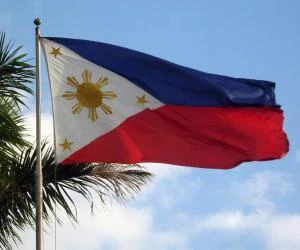With its removal from the European Commission’s list of jurisdictions at high risk for money laundering, the Philippines DOJ pledges to continue the battle against financial crimes.
The Philippines Department of Justice has promised to continue its battle against financial crimes including money laundering, terrorism financing and proliferation financing.
On Friday, the European Commission removed the Philippines from its list of markets at high risk for financial crimes.
In a statement, the DOJ said the Philippines has “effectively addressed [its] technical deficiencies on AML/CFT (anti-money laundering/counter-terrorism financing)… aligned with international standards”.
The delisting “is an affirmation of our government’s unyielding stand against money laundering and terrorism financing”, said Justice Secretary Jesus Crispin Remulla. “It will serve as a catalyst for the DOJ to further strengthen the rule of law not just within the Philippines, but at a global stage.”
Cleaning its financial house
Earlier this year, the Philippines celebrated its exit from the Financial Action Task Force “grey list” of countries vulnerable to financial crimes.
It was put on the FATF list in 2021 due to money laundering by casino junkets and a lack of prosecution of terrorism-financing cases. It was only removed after completing an 18-point action plan to demonstrate the system’s financial integrity. Among other reforms, authorities vowed to:
- Increase investigations and prosecutions of financial crimes;
- Apply greater scrutiny to non-financial institutions including casinos;
- Use fraud detection technologies to identify financial crimes.
Casinos not covered until 2017
The Philippines passed its Anti-Money Laundering Act in 2001. For many years, however, the law did not apply to gaming, an industry seen as lending itself to financial crimes.
It wasn’t until the passage of the Republic Act 10927 of 2017 that all Philippines casinos – land-based, online and ship-based – were considered “covered persons” under the law.
In recent years the Philippines has been resolute in cracking down on crime associated with gambling. Last July, President Ferdinand Marcos Jr banned Philippine Offshore Gaming Operations, or POGOs, following widespread reports of financial crimes, online scams and human trafficking.
An editorial in the Manila Bulletin said the Philippines “has made tangible progress in aligning with international standards” on AML/CFT. But, it warned, “The delisting from the EU watchlist is a milestone to celebrate – but it is not an endpoint.
“It is a stepping stone toward a more transparent, trusted and inclusive financial system. The country must stay the course and remain agile in confronting new and complex threats. In doing so, the Philippines can earn not just regulatory approval, but also the long-term trust of investors, partners and citizens alike.”
